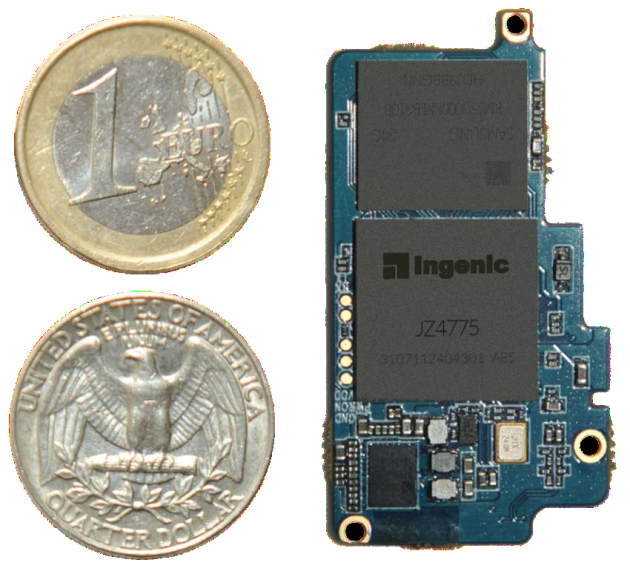Chinese firm develops power-saving miniature computer for wearables

Ingenic Semiconductor, a fabless semiconductor company based in Beijing, has released a miniature computer the size of an SD card that can run a full version of Android while making it easier to build wearable devices.
The "Newton" is the first development kit for wearables with a MIPS-based CPU. It's an integrated board for firms that want to build and prototype wearable devices.
Newton salient feature is its extremely low power consumption, which is key to the long battery life wearables need to provide. Newton consumes just 4 milliwatts in standby mode and consumes 100 miliwatts during MP3 playback, according to industry sources.
This means that Newton-powered smartwatches can last for more than 30 hours on a single charge.
The Newton's MIPS CPU operates at 1GHz while the graphics core can play 720p graphics at 30 frames per second. Other features are 256KB of L2 cache, Wi-Fi and Bluetooth attachments and UART, USB and GPIO connectors, among others. The board can support up to 3GB of memory.
Newton can include a CPU, Flash, Wi-Fi, NFC and various sensors on a single board about the same length as two U.S. quarters. The Newton board isn't yet compatible with Android Wear, but this capability will eventually be built in.
Integrated boards like Newton are becoming popular. Rival Intel has released a miniature computer for wearables called Edison.
MIPS, originally an acronym for Microprocessor without Interlocked Pipeline Stages, is a reduced instruction set computeing instruction set architecture developed by MIPS Technologies. The current revisions are MIPS32 (for 32 bit implementations) and MIPS64 (for 64 bit implementations). MIPS32 and MIPS64 define a control register set and the instruction set.